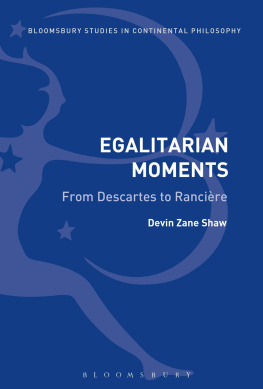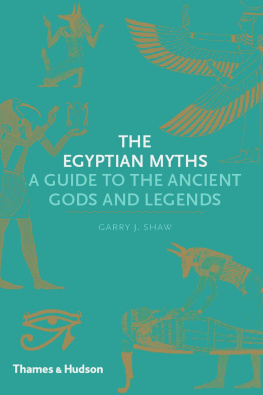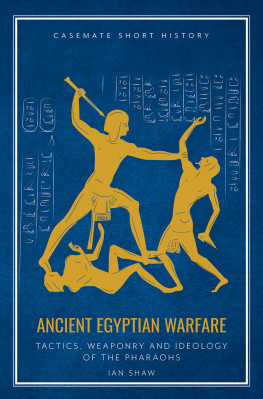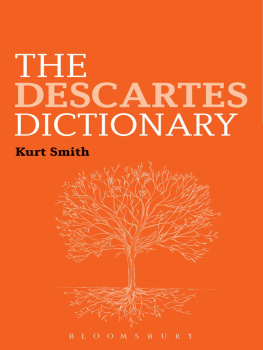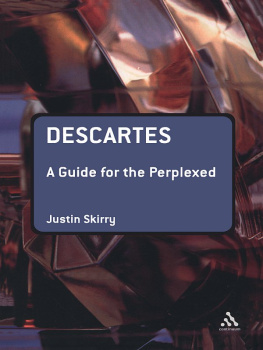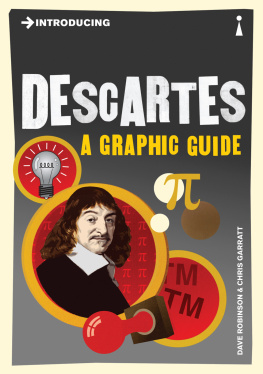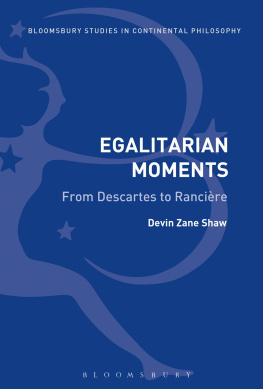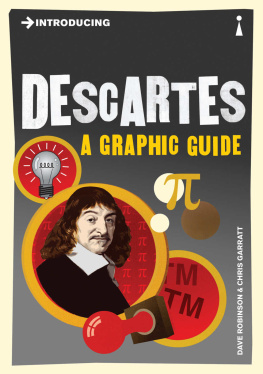Shaw - Egalitarian Moments: From Descartes to Rancière
Here you can read online Shaw - Egalitarian Moments: From Descartes to Rancière full text of the book (entire story) in english for free. Download pdf and epub, get meaning, cover and reviews about this ebook. year: 2016, publisher: Bloomsbury UK, genre: Politics. Description of the work, (preface) as well as reviews are available. Best literature library LitArk.com created for fans of good reading and offers a wide selection of genres:
Romance novel
Science fiction
Adventure
Detective
Science
History
Home and family
Prose
Art
Politics
Computer
Non-fiction
Religion
Business
Children
Humor
Choose a favorite category and find really read worthwhile books. Enjoy immersion in the world of imagination, feel the emotions of the characters or learn something new for yourself, make an fascinating discovery.
- Book:Egalitarian Moments: From Descartes to Rancière
- Author:
- Publisher:Bloomsbury UK
- Genre:
- Year:2016
- Rating:5 / 5
- Favourites:Add to favourites
- Your mark:
- 100
- 1
- 2
- 3
- 4
- 5
Egalitarian Moments: From Descartes to Rancière: summary, description and annotation
We offer to read an annotation, description, summary or preface (depends on what the author of the book "Egalitarian Moments: From Descartes to Rancière" wrote himself). If you haven't found the necessary information about the book — write in the comments, we will try to find it.
Shaw: author's other books
Who wrote Egalitarian Moments: From Descartes to Rancière? Find out the surname, the name of the author of the book and a list of all author's works by series.
Egalitarian Moments: From Descartes to Rancière — read online for free the complete book (whole text) full work
Below is the text of the book, divided by pages. System saving the place of the last page read, allows you to conveniently read the book "Egalitarian Moments: From Descartes to Rancière" online for free, without having to search again every time where you left off. Put a bookmark, and you can go to the page where you finished reading at any time.
Font size:
Interval:
Bookmark:

Egalitarian Moments
Bloomsbury Studies in Continental Philosophy presents cutting-edge scholarship in the field of modern European thought. The wholly original arguments, perspectives and research findings in titles in this series make it an important and stimulating resource for students and academics from across the discipline.
Breathing with Luce Irigaray , edited by Lenart Skof and Emily A. Holmes
Deleuze and Art , Anne Sauvagnargues
Deleuze and the Diagram: Aesthetic Threads in Visual Organization , Jakub Zdebik
Derrida, Badiou and the Formal Imperative , Christopher Norris
Desire in Ashes: Deconstruction, Psychoanalysis, Philosophy , edited by Simon Morgan Wortham and Chiara Alfano
Ernst Bloch and His Contemporaries , Ivan Boldyrev
Why there is no Post-Structuralism in France , Johannes Angermuller
Gadamers Poetics: A Critique of Modern Aesthetics , John Arthos
Heidegger, History and the Holocaust, Mahon OBrien
Heidegger and the Emergence of the Question of Being , Jess Adrin Escudero
Immanent Transcendence: Reconfiguring Materialism in Continental Philosophy , Patrice Haynes
Merleau-Pontys Existential Phenomenology and the Realization of Philosophy , Bryan A. Smyth
Nietzsche and Political Thought , edited by Keith Ansell-Pearson
Nietzsche as a Scholar of Antiquity , Helmut Heit
Philosophy, Sophistry, Antiphilosophy: Badious Dispute with Lyotard, Matthew R. McLennan
The Poetic Imagination in Heidegger and Schelling , Christopher Yates
Post-Rationalism: Psychoanalysis, Epistemology, and Marxism in Post-War France , Tom Eyers
Revisiting Normativity with Deleuze , edited by Rosi Braidotti and Patricia Pisters
Towards the Critique of Violence: Walter Benjamin and Giorgio Agamben , Brendan Moran and Carlo Salzani
Dedicated to the memory of Ruth and Robert Shaw
Egalitarian Moments
From Descartes to Rancire
Devin Zane Shaw
Bloomsbury Academic
An imprint of Bloomsbury Publishing Plc

Contents
Parts of this book were previously published and have been reproduced, in revised form, with the permission of their respective publishers:
Inaesthetics and Truth: The Debate between Alain Badiou and Jacques Rancire, , 28, 2 (2007), 18399.
Alain Badiou, The Century, The Radical Philosophy Review , 11, 1 (2008), 815.
Alain Badiou, in Miko uvakovi and Ale Erjavec (eds), Figure u pokretu. Savremena zapadna estetika, filozofija i teorija umetnosti . Belgrade: Atoa (2009), 64557.
Jacques Rancire, The Politics of Literature, Marx and Philosophy Review of Books (2011): http://marxandphilosophy.org.uk/reviewofbooks/reviews/2011/344.
Cartesian Egalitarianism: From Poullain de la Barre to Rancire, Phaenex , 7, 1 (2012), 10129.
The Nothingness of Equality: The Sartrean Existentialism of Jacques Rancire, Sartre Studies International , 18, 1 (2012), 2948.
I also presented portions of this book at the Society for European Philosophy and the Forum for European Philosophy in 2006, the North American Sartre Society in 2011, and the Society for Existential and Phenomenological Theory and Culture in 2013. My participation at these various conferences would not have been possible without the travel grants I received from the Association of Part-Time Professors of the University of Ottawa.
This list of publications and conference presentations only tells part of the story of writing this book. Although I didnt know it at the time, the research for this book began in 2006, when, due to my interest in his work on poststructuralist anarchism, I invited Todd May to give the keynote address to our graduate student conference at the University of Ottawa. May graciously accepted and told me that the topic would be Difference and Equality in the Thought of Jacques Rancire. Having only read Rancires The Names of History (in a way that, in retrospect, seems to have been inattentively), I rushed, for better or worse, to read Disagreement and The Philosopher and His Poor in preparation for his talk and the interview we planned to publish in the departments graduate journal. Since then, Ive accumulated a great many debts while writing this book, having benefitted from the patience of my editor, Frankie Mace, the suggestions of several anonymous reviewers, and the conversations with and comments of the following friends and colleagues: Ian Beeston, Mark Raymond Brown, Penny Cousineau-Levine (who invited me in 2012 to discuss Rancire in her graduate seminar, Art and Cultural Theory), Andrea Fitzpatrick, Wes Furlotte, Peter Gratton, T. Storm Heter, Bill Martin, Patrice Philie, Jeffrey Reid, Jeff Renaud, Tzuchien Tho and Jason M. Wirth. I would be remiss if I concluded this list without signalling the constant support of my family, and, especially, Kylie.
Not in Utopia, subterraneous Fields,
Or some secreted Island, Heaven knows where,
But in the very world which is the world
Of all of us, the place in which, in the end,
We find our happiness, or not at all.
William Wordsworth, The Prelude (1805, lines 1404)
Supposing equality
As an epigraph to The Philosopher and His Poor , Jacques Rancire reproduces a scene from Adrien Baillets that recounts how Dirk Rembrantsz, a shoemaker by trade and autodidact mathematician and astronomer by avocation, sought out to confer with a certain Ren Descartes about important matters. Twice rebuffed by the philosophers attendants, on the third visit he was received by Descartes, who recognized Rembrantszs competence and merit on the spot, and wanted to repay him with interest for all his troubles. Descartes, Baillet adds,
was not satisfied in instructing him in all manner of difficult subjects and in imparting his Method to rectify reasoning. He also counted him as one of his friends: despite the lowliness of Rembrantszs estate, M. Descartes did not regard him as beneath those of the first rank, and he assured Rembrantsz that his home and heart would be open to him at all hours. (quoted in Rancire, 1983, xxiii; Baillet, 1691, II: 5545)
The question is: how do we interpret this story of an unlikely friendship between philosopher and cobbler? Certainly, it shows Descartes exhibiting that key to all the other virtues, which is generosity (Descartes, XI: 454). But there is obviously more to the story. It is also perhaps a tale of perseverance, as Baillet notes that Rembrantsz had often cultivated his knowledge of mathematics at the expense of his livelihood. Today, some of our contemporaries might lay emphasis on how the shoemaker became one of the foremost astronomers of his century (in Baillets words) and see in this story a testament to Rembrantszs ability to pull himself up by his bootstraps. Which means that we may as well say it is a fable of luck or chance. Yet these interpretations do not yet tell us why the story prefaces The Philosopher and His Poor . One of Baillets contemporaries, Antoine Boschet, may be of assistance. As Genevive Rodis-Lewis points out, Baillet was attacked by his contemporaries upon the appearance of his Vie de R. Descartes [ sic ], which was judged ridiculous for the importance granted to Instead, Descartes draws the consequence that there is an equality of intelligences and abilities shared by all human beings:
the power of judging well and of distinguishing the true from the false which is what we properly call good sense or reason is naturally equal in all men, and consequently that the diversity of our opinions does not arise because some of us are more reasonable than others but solely because we direct our thoughts along different paths and do not attend to the same things. (VI: 2)
Font size:
Interval:
Bookmark:
Similar books «Egalitarian Moments: From Descartes to Rancière»
Look at similar books to Egalitarian Moments: From Descartes to Rancière. We have selected literature similar in name and meaning in the hope of providing readers with more options to find new, interesting, not yet read works.
Discussion, reviews of the book Egalitarian Moments: From Descartes to Rancière and just readers' own opinions. Leave your comments, write what you think about the work, its meaning or the main characters. Specify what exactly you liked and what you didn't like, and why you think so.

